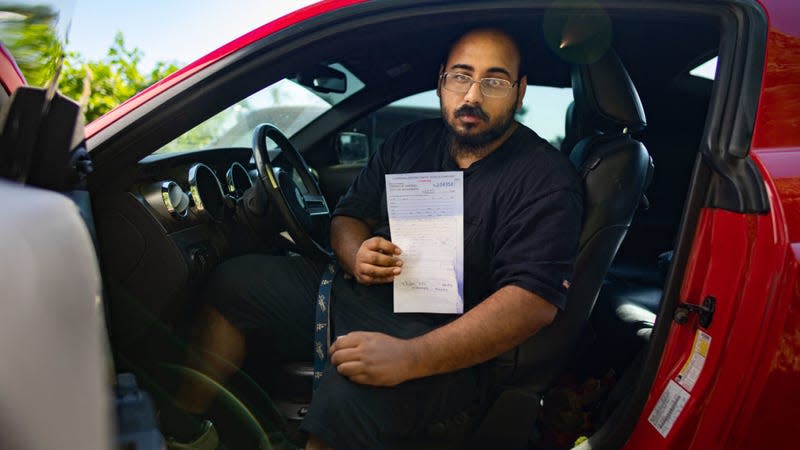Police Keep Violating the U.S. Constitution With Illegal Traffic Stops

For years, we’ve been reporting on unconstitutional traffic stops by police. They suck, and yet, they keep happening. Recently, Forbes published a great article highlighting this exact issue, and while it’s a great read, it’s also pretty depressing. The way the incentive system is currently set up, law enforcement officers stand to gain a lot more than they might lose for conducting what amount to glorified fishing operations — even though the practice is a wholesale violation of rights guaranteed in the U.S. Constitution.
Take Mario Rosales’s story, for example. As Forbes recounts, Rosales was pulled over and ticketed for failure to signal a turn. Except he’d actually had his turn signal on, and he knew it. But without proof, it was just his word against the officer’s. Luckily for him, Rosales was able to find a business near the intersection with a security camera that captured the traffic stop. And what do you know, the footage showed that, indeed, his turn signal had been on.
Read more
Getting pulled over for a made-up violation is bad enough, but then it got worse. When the police released the ticketing officer’s dashcam and bodycam footage, the video not only confirmed again that Rosales had used his signal as required by law — the footage also made it clear that the two officers who pulled over Rosales had explicitly made up the infraction hoping to find something more serious to charge Rosales with.
You wouldn’t expect such a minor traffic violation to result in police asking you to step out of your car and empty your pockets. Normally, a turn-signal stop doesn’t result in a driver getting frisked and questioned about transporting illegal drugs. All of this happened to Rosales, caught on video by the officers’ own cameras. But the audio was even more damning. It captured the officers vocalizing their disappointment when they found out Rosales had zero outstanding arrest warrants. An outstanding warrant would have allowed the officers to search Rosales’ car, or hold him aside as they sniffed the car with a drug dog.
In the end, Rosales got hit with a minor violation as a result of the traffic stop: He’d waited too long to re-register his car after moving from another state. And incidentally, once Rosales got his hands on the audio from the stop, the police dropped his citations. Funny how that happens.
Unhappy with his rights being violated, Rosales teamed up with the Institute for Justice to sue the police department and the officers. “The Fourth Amendment promises that police will not detain us on a whim to search for crimes,” said IJ attorney Marie Miller in a statement. “They have to reasonably suspect a person of a crime to stop and interrogate them about it. The Constitution is the highest law in the land and officers can’t violate it in pursuit of a crime.”
In the same release, Rosales said, “I did nothing wrong, but I still found myself standing on the side of the road wondering whether I would be arrested. What happened to me was wrong and I’m trying to hold the police and the city accountable because they are certainly treating other people the same way. Police have an important job to do, but they have to follow the Constitution.”
They’re both right. But as Forbes points out, Rosales is far from the only person to experience this unconstitutional treatment. It’s a national problem that shows no sign of being fixed anytime soon. It’s profitable for officers of the law to routinely violate citizens’ constitutional rights, and until police departments face real, widespread consequences for their actions, it’s unlikely that this conduct will cease. For a deeper look at this topic, go read the full Forbes report.
More from Jalopnik
Sign up for Jalopnik's Newsletter. For the latest news, Facebook, Twitter and Instagram.

 Yahoo Autos
Yahoo Autos 